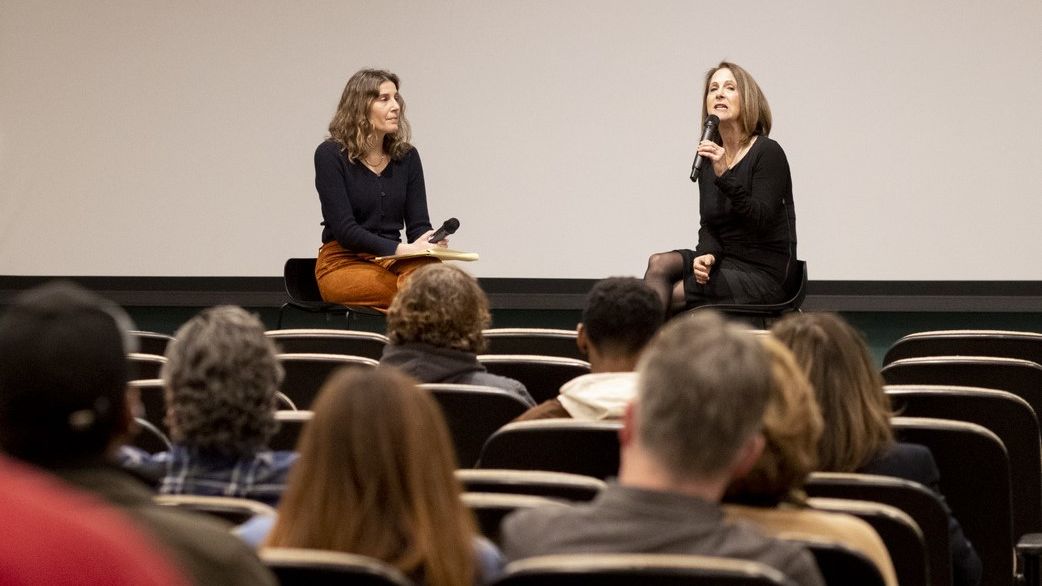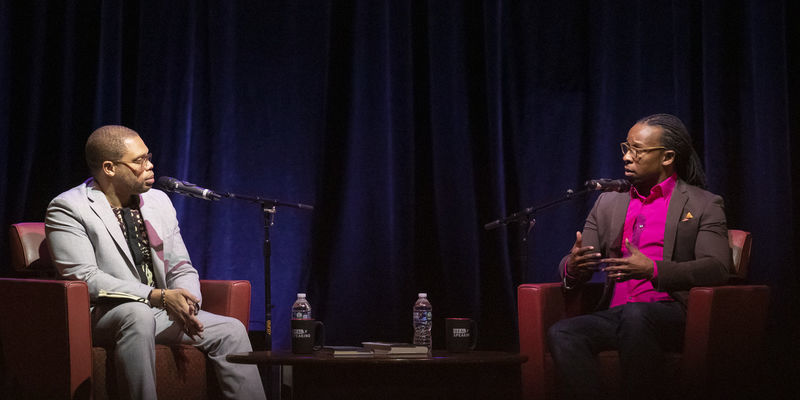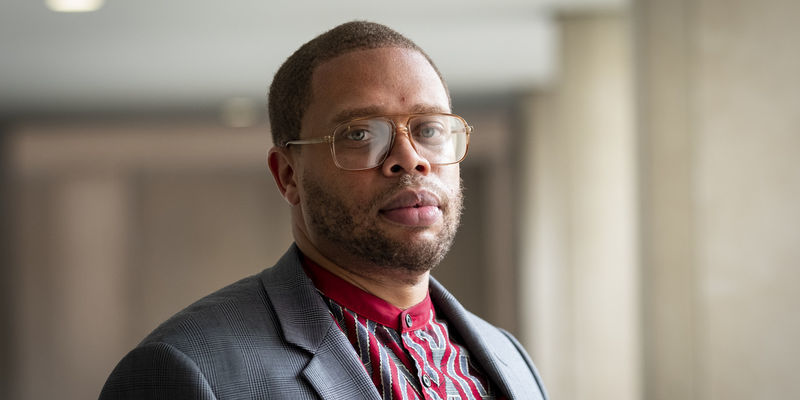‘The US and the Holocaust’ director Lynn Novick visits Temple for a conversation about antisemitism
Temple University hosted The U.S. and the Holocaust: A Conversation with Director Lynn Novick about History and Responsibility, moderated by Feinstein Center for American Jewish History director Lila Corwin Berman.

Director and producer Lynn Novick visited Temple’s campus on March 16 to discuss her new film series, The U.S. and the Holocaust, a new three-part, six-hour documentary series, which originally aired on PBS in September 2022. Together with Temple history professor Lila Corwin Berman the pair also led a dynamic conversation about antisemitism in America.
Novick’s visit was hosted by the Feinstein Center for American Jewish History, together with IDEAL, Global Engagement, Klein College of Media and Communication, the College of Liberal Arts Intellectual Heritage Program; the GenEd program, and Hillel at Temple. The event emerged in the wake of the Blue Ribbon Commission on Antisemitism’s recommendations to the university to provide deeper educational experiences about Temple’s Jewish campus community and address the issue of antisemitism on campus.
Novick is an Emmy and Peabody award-winning documentary filmmaker who has produced films about American history and culture, often alongside Ken Burns, for nearly 30 years. The U.S. and the Holocaust was a collaboration between Novick, Burns and fellow filmmaker Sarah Botstein.
The U.S. and the Holocaust is an exploration of America’s response to the Holocaust. The film digs deep into history and connects the dots to important issues Americans still deal with today, like racism, fascism, and xenophobia. The show's finale brings the audience right up to recent events like the Charlottesville protests and the Capitol riot, linking them back to the hatred and antisemitism of the 1930s.
"The film so powerfully shows it is impossible to separate Jewish history from the histories of other groups, especially when it comes to forces of oppression,” Berman added. “These forces do not always operate identically—and it’s important to note how they diverge—but we cannot understand oppression without thinking about the intersections.”
In her remarks, Novick discussed the surprising discoveries she made in researching this film. One such discovery was the connection between U.S policies, like Jim Crow-era laws that discriminated against Black Americans, and the policies operationalized in Nazi Germany. Novick was particularly shocked to discover that Adolf Hitler greatly admired America for its discriminatory policies which he interpreted to mean that America was a like minded Aryan nation similarly set on exterminating native populations and creating a racial hierarchy.
Another surprising discovery for Novick was the abundance of news coverage about the Nazi regime’s treatment of Europe’s Jewish population which included detailed articles about persecution, atrocities, deportations and mass killings. She realized this meant that Americans were aware of the violence occurring in Germany, yet millions of Jews died before U.S. military forces finally stepped foot on European soil in WWII.
During the question-and-answer segment of the program, Temple students asked Novick to reflect on the relationship between current-day anti-immigration policies and the history she highlights in her film. Novick responded, in part, by sharing some stories she encountered during the film’s production that taught her that policy decisions can come with profound human costs.
She gave the example of one of the subjects in the film, a man named Guy Stern, who is a 101-year-old survivor of the Holocaust. His parents did not survive the Holocaust but they managed to send him to live in the U.S. with his aunt and uncle. He joined the U.S. Army in World War II and was assigned to the intelligence branch, traveling back to Europe to interrogate Nazi prisoners of war.
“The fragility of our democracy and dangers of authoritarianism rising around the U.S. and the world has become urgent,” Novick said. “There are concerns of not having free and fair elections, a peaceful transfer of power, and freedom of the press and religion.”
The U.S. and the Holocaust can be viewed in full on pbs.org or streamed using the PBS Video app. This coming fall, Berman will teach a new General Education class called “Antisemitism, Past and Present (CLA 0830).


